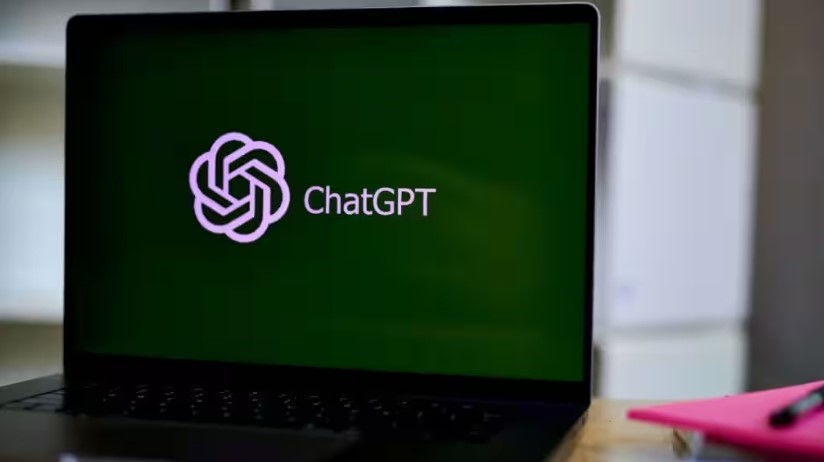OpenAI’s Mira Murati Predicts PhD-Level AI Intelligence Soon
Mira Murati, CTO of OpenAI, predicts AI systems reaching “PhD-level” intelligence in specific tasks within a few years. At Dartmouth Engineering, she likened GPT-3 to a toddler and GPT-4 to a bright high school student. OpenAI plans to release a new model achieving this advanced intelligence. Additionally, OpenAI rolled out GPT-4o, a free, cost-efficient version of GPT-4, offering enhanced real-time text, audio, and image processing capabilities.
Source: Financial Express
Deepinder Goyal Backs Biodegradable Packaging in Response to Health Concerns
Zomato CEO Deepinder Goyal responded to nutritionist Luke Coutinho’s call for biodegradable packaging in food delivery. Coutinho warned about health hazards from hot food in plastic containers, urging Swiggy and Zomato to switch to eco-friendly alternatives. Goyal pledged to highlight restaurants using food-safe packaging, allowing customers to make healthier choices. Despite Zomato’s commitment, Coutinho criticized Swiggy for not addressing the issue.
Source: Live Mint
Budget 2024-25: Highway Capex to Rise by Up to 10%
The Indian government plans to increase capital expenditure for highway development by 5-10% in the 2024-25 Union Budget. The Ministry of Road Transport and Highways, which received ₹2.72 trillion in the interim Budget, has already utilized over ₹57,000 crore. Experts find the proposed hike reasonable due to the high base from previous years’ significant increases. This move aims to support new and ongoing projects, including the Bharatmala Pariyojana, under the Vision 2047 initiative.
Source: Business Standard
Why Food Prices Will Remain High in India
Food inflation in India, at around 8% year-on-year since November 2023, is driven by adverse weather affecting crops. A drought last year and ongoing heat wave have reduced supplies of pulses, vegetables, and cereals. Despite early monsoon rains, an 18% rainfall deficit has delayed crop planting. Prices may ease if monsoon rains normalize, but tight supplies of milk, cereals, pulses, and sugar will likely keep prices high.
Source: Reuters
Rupee Hits Record Low Amid Dollar Surge
The Indian rupee fell by 19 paise to a record low of 83.6475 against the dollar on Thursday. Despite this drop, the rupee remains Asia’s second-best-performing currency this year after the Hong Kong dollar. Contributing factors include the dollar’s strength, high demand from local importers, and recent corporate outflows. Experts point to the Reserve Bank of India’s efforts to stabilize the currency by building foreign exchange reserves.
Source: Financial Express
RBI Maintains Repo Rate Amid Persistently High Food Inflation
The RBI’s Monetary Policy Committee kept the repo rate unchanged at 6.5%, citing ongoing food inflation driven by high vegetable, pulse, cereal, and spice prices. Despite food inflation, price stability is crucial for growth, according to Governor Shaktikanta Das. Future inflation risks include climate events and volatile oil prices. The RBI remains focused on disinflation, projecting 7.2% GDP growth for 2024-25.
Source: Live Mint
Swiss Court Sentences Four Hinduja Family Members for Worker Exploitation
A Swiss court has sentenced four Hinduja family members to 4-4.5 years in prison for exploiting domestic workers. The court dismissed trafficking charges, citing the workers’ understanding of their roles. The family was found guilty of unauthorized employment and exploiting workers by seizing passports, paying in rupees, and forcing long hours. A fifth defendant, Najib Ziazi, received an 18-month suspended sentence. The family plans to appeal the verdict.
Source: Business Standard
Tata Steel Workers in UK to Strike Over Job Cuts
Tata Steel UK workers will initiate an indefinite strike from July 8, protesting the planned closure of two blast furnaces and 2,800 job cuts at Port Talbot and Llanwern in Wales. This marks the first strike in over 40 years, significantly impacting operations. Despite seven months of negotiations, the union and Tata Steel failed to reach an agreement. Tata Steel aims to transition to Electric Arc Furnaces, preserving 5,000 jobs and reducing CO2 emissions.
Source: Business Today
SEBI Tightens IPO Pre-Open Session Rules with Enhanced Surveillance
The Securities and Exchange Board of India (SEBI) has implemented stricter surveillance on IPO pre-open call auction sessions, effective in 90 days. The session will run for 60 minutes, with specific intervals for order entry, modification, cancellation, matching, and trade confirmation. New measures include system-driven random closures and alerts for significant price modifications and cancellations. This aims to curb manipulative practices and enhance market integrity.
Source: Financial Express
How Health Insurance Plans Reward Active Lifestyles with Discounts
To celebrate International Yoga Day, several health insurance plans now offer premium discounts for maintaining an active lifestyle. Policies like HDFC Ergo My Health Suraksha Plan and ICICI Lombard Elevate provide discounts based on calories burned and steps taken. Aditya Birla Active One even offers a 100% premium return for active lifestyles. These incentives aim to reduce health insurance costs and promote wellness through regular exercise and yoga.
Source: Live Mint
Pine Labs Eyes $1 Billion IPO in India After Relocating from Singapore
Fintech firm Pine Labs plans a $1 billion IPO in India, aiming for a valuation over $6 billion. The company, backed by Peak XV Partners and Mastercard Inc, received approval to move its base from Singapore to India. Pine Labs may issue new and secondary shares and consider a pre-IPO fundraising round. This IPO would be India’s largest fintech offering since Paytm’s $2.5 billion IPO in 2021.
Source: Business Standard
Zerodha Faces Technical Glitches, Traders Lose Money
On June 21, Zerodha’s broking platform experienced a complete freeze, preventing trades and causing losses for users. Stocks like India Cement were incorrectly marked as restricted. This follows similar issues on June 3 and multiple instances last year. Frustrated traders vented on social media, demanding accountability. Meanwhile, IIFL brokerage accounts also faced disruptions due to large order placements. The platform has since resumed normal operations.
Source: Business Standard


Leave a Reply